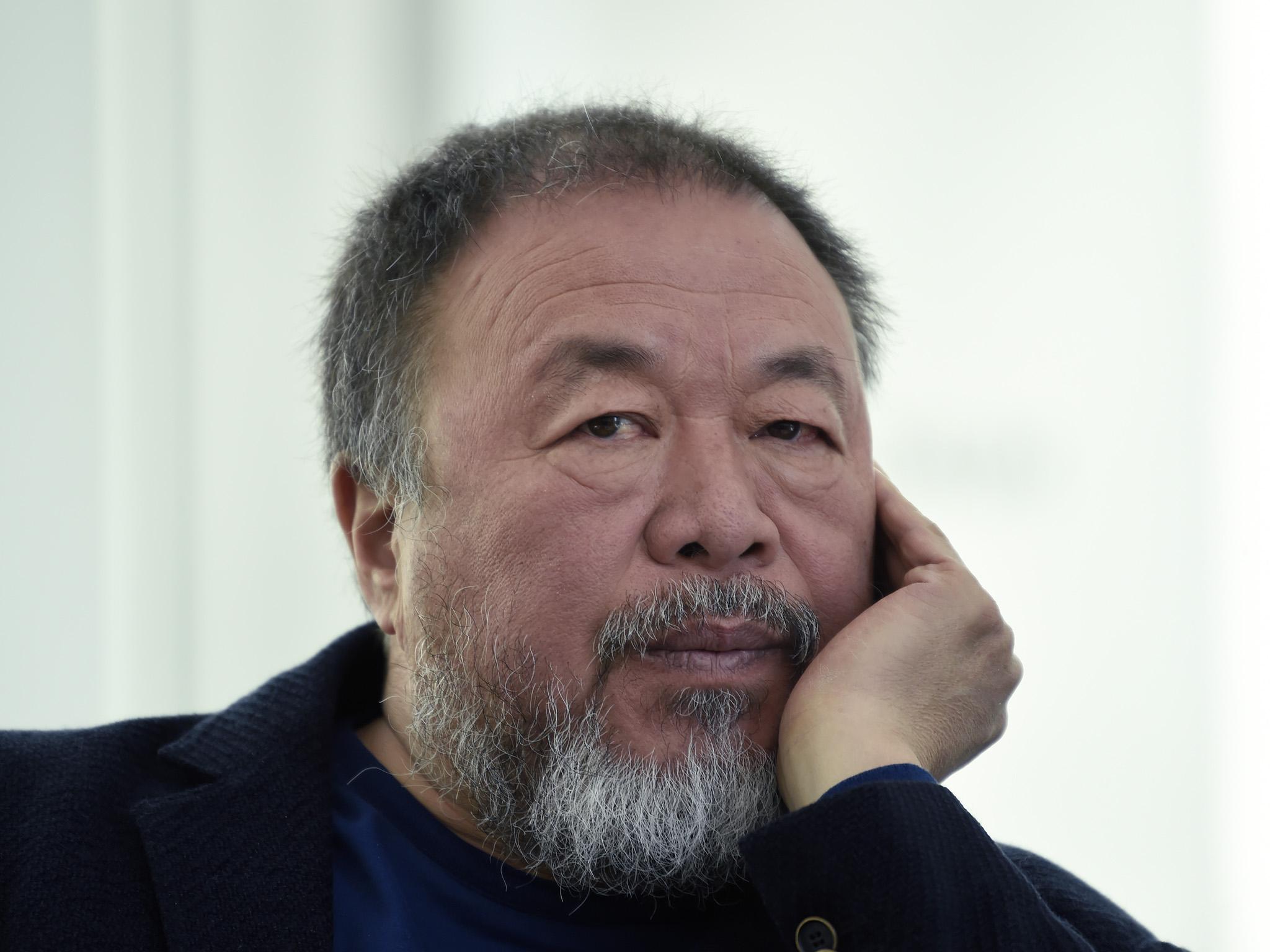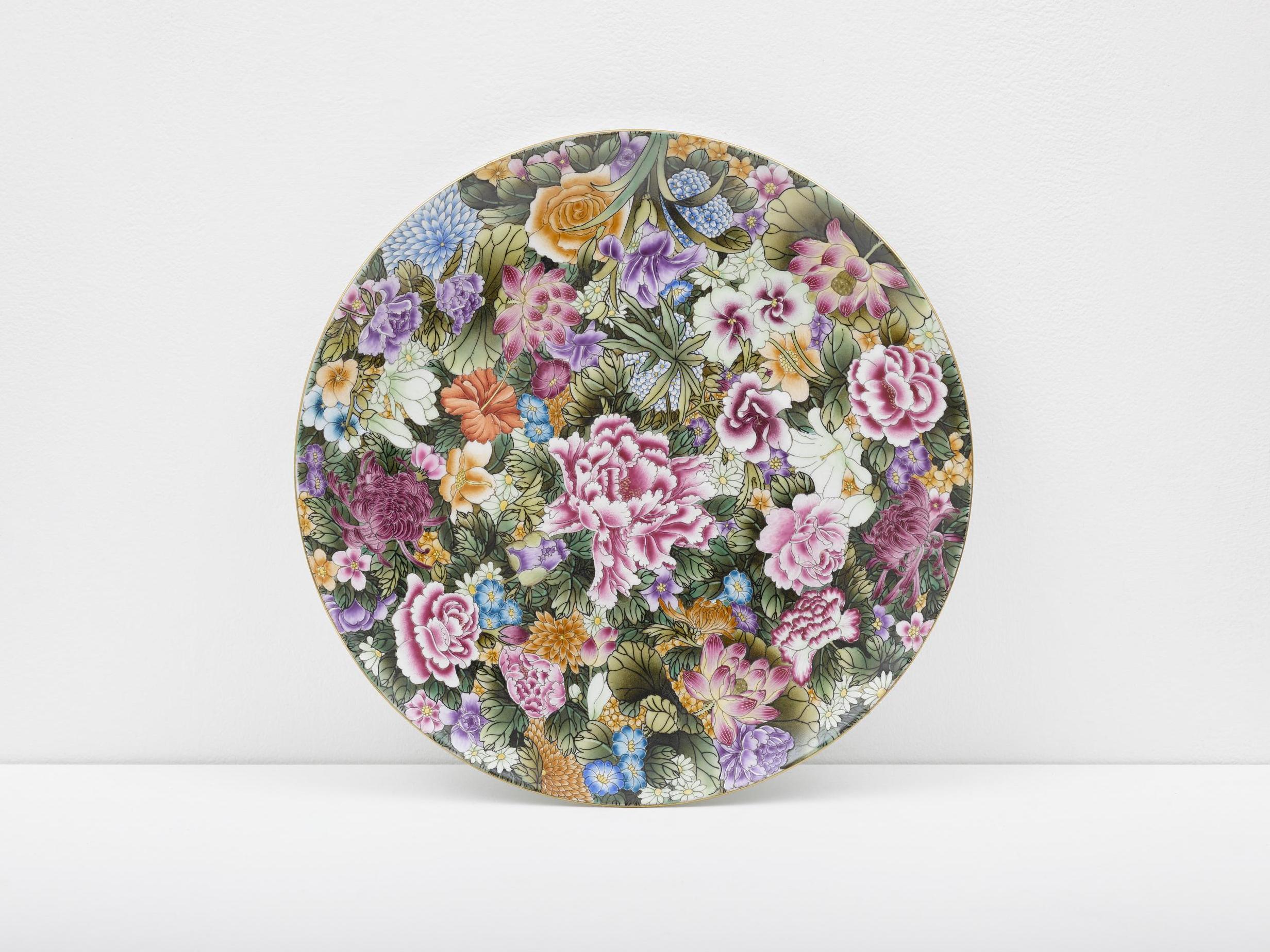Ai Weiwei: China’s national security law ‘finished’ Hong Kong’s autonomy, says artist
Exclusive interview: The artist and activist, who is donating work to The Independent’s Help The Hungry campaign, discusses human rights violations, the pandemic and ‘the new cold war’

Your support helps us to tell the story
From reproductive rights to climate change to Big Tech, The Independent is on the ground when the story is developing. Whether it's investigating the financials of Elon Musk's pro-Trump PAC or producing our latest documentary, 'The A Word', which shines a light on the American women fighting for reproductive rights, we know how important it is to parse out the facts from the messaging.
At such a critical moment in US history, we need reporters on the ground. Your donation allows us to keep sending journalists to speak to both sides of the story.
The Independent is trusted by Americans across the entire political spectrum. And unlike many other quality news outlets, we choose not to lock Americans out of our reporting and analysis with paywalls. We believe quality journalism should be available to everyone, paid for by those who can afford it.
Your support makes all the difference.Chinese artist and activist Ai Weiwei has issued a stark warning that China’s denial of human rights of the Uighur people in Xinjiang is a foreshadowing of the fate of Hong Kong.
The dissident artist said: “What is happening in Xinjiang is a look into the future of what will happen to Hong Kong. China sees it as simply a matter of domestic policy to crack down on minority groups by the hundreds of thousands. Tibetans have also faced similar treatment. It has been this way for years.”
He added: “The Hong Kong situation has shown us that this authoritarian society will never give any space for discussion or negotiation. It is simply incapable of communicating with those with different ideas or ideologies.
“They have always been this way and as long as the communists exist will remain the same into the future,” he continued. “‘One Country, Two Systems’ was finished the moment China applied its national security law to Hong Kong. China violated its own promise. It is a society that is unreliable and cannot be negotiated with.”
In an exclusive interview that veered between the personal and the political, Weiwei, 62, a supporter of The Independent’s Help The Hungry campaign, also talked about the painful origins of his floral porcelain plate which goes under the hammer as part of the Sotheby’s contemporary charity art auction that closes on 30 July. “I designed the plate when I was living under detention in China [in 2011],” he said. “For 600 days, I placed a fresh bouquet of flowers in the bicycle basket in front of my studio’s gate. I photographed them and posted those images online to demand the restoration of my right to travel.”
The auction is raising money for The Felix Project. Founded by Justin Byam Shaw, the former chairman of The Independent, Felix is the largest food surplus distributor in the UK and our appeal beneficiary. Weiwei stressed the importance of ensuring people have enough to eat. “Sharing food is the most fundamental human gesture, beyond ideology or religion,” he said. “Food is essential. It has a much more profound meaning about how we understand ourselves and how we relate to our culture. But for those who lack necessary nutrition, it’s really a matter of human dignity. Too often that dignity is in a shattered state.
“I have visited dozens of refugee camps around the world where people ate in unthinkable conditions,” he continued. “I remember seeing people wait in lines for hours simply for a cup of tea, people cooking over open flames without any tools. Sharing food is the most fundamental human gesture.”
Since the pandemic, Weiwei has launched himself into artistic and humanitarian projects. “Every event that happens around me has an impact on my work. I would have no work without the emotions or consciousness raised by those events.” In June he raised over £1m selling face coverings with his renowned motifs of sunflower seeds and a defiant middle finger to support the work of international humanitarian charities battling coronavirus. He has also produced three documentaries, one covering a Rohingya refugee camp in Bangladesh and another about life in Wuhan amid the pandemic.
Weiwei is no stranger to engaging with significant events in the Middle Kingdom. In 2009 for example, the Chinese government finally revealed the official death toll from the Sichuan earthquake after Weiwei launched his own investigation.
At Munich’s Haus der Kunst he created an artwork – Remembering – out of 9,000 school backpacks to commemorate the students who died when their poorly-built classrooms collapsed after the earthquake.

The coronavirus and China’s subsequent reaction have done little to encourage Weiwei about the country’s status as an emerging superpower. He dismissed his homeland’s reaction to the virus as “untrustworthy, opaque and in denial of responsibility from the very beginning”, continuing: “The casualties are clear and factual. The conclusion from this crisis is still unknown. Many countries still deny the truth or shy away from it.”
While he rejects the increasingly popular suggestion of a “new cold war between China and the west”, he warns that if the latter does not have a clear strategy, it “will lose this competition”.
Weiwei’s father Ai Qing was one of China’s most eminent literary figures. He fell out of favour with the regime and the family was exiled to Xinjiang in the far west of the country, where his father was forced to clean communal latrines. In 2015, Weiwei was finally granted a passport and permission to leave China. He now resides in Cambridge and has a studio in Berlin.
Of his vision post-pandemic, he said: “Covid-19 compels us to consider fundamental questions. How will society continue to develop? In what way can we still protect humanity and prevent a repeat crisis, especially those that are not natural disasters but the product of hidden and misleading information and irrational thinking on many levels, across different societies?
“In many ways, [the pandemic] will adjust our understanding of our lives, and how individuals relate to society and to the rest of the world. It has shown us clearly that no one can be safe, healthy and secure all on their own, but must deal with the same issues as their neighbours, communities, and even those in other countries.”
Ai Weiwei’s ‘Small Plate With Flowers’ and other works from the Help the Hungry auction are available until 30 July. To place a bid, head to sothebys.com/en/buy/auction/2020/contemporary-art-london. To book an appointment please email AppointmentsLondon@sothebys. com or call +44 (0) 207 293 5449.
The Independent is encouraging readers to help groups that are trying to feed the hungry during the crisis – find out how you can help here.
Join our commenting forum
Join thought-provoking conversations, follow other Independent readers and see their replies
Comments